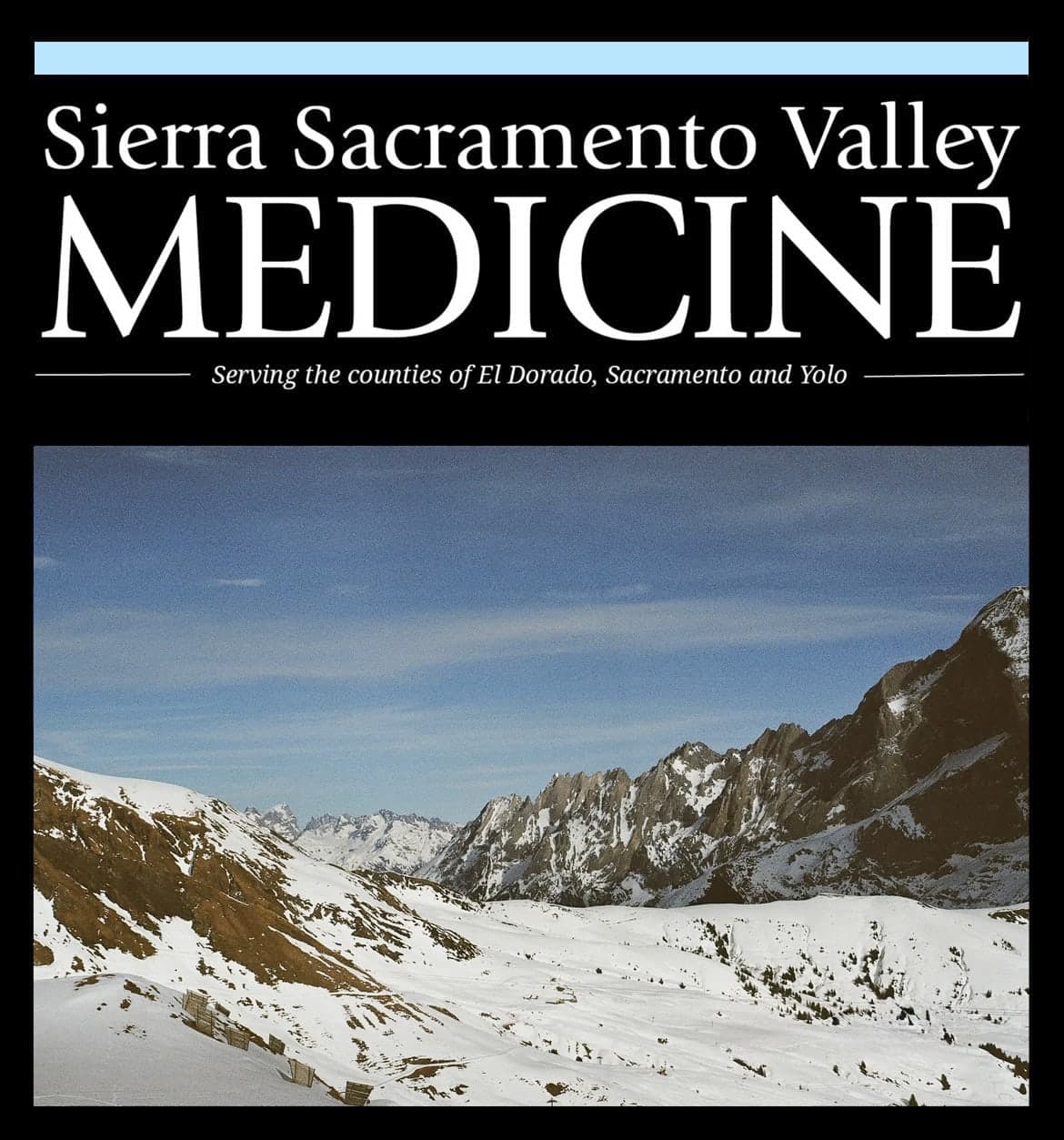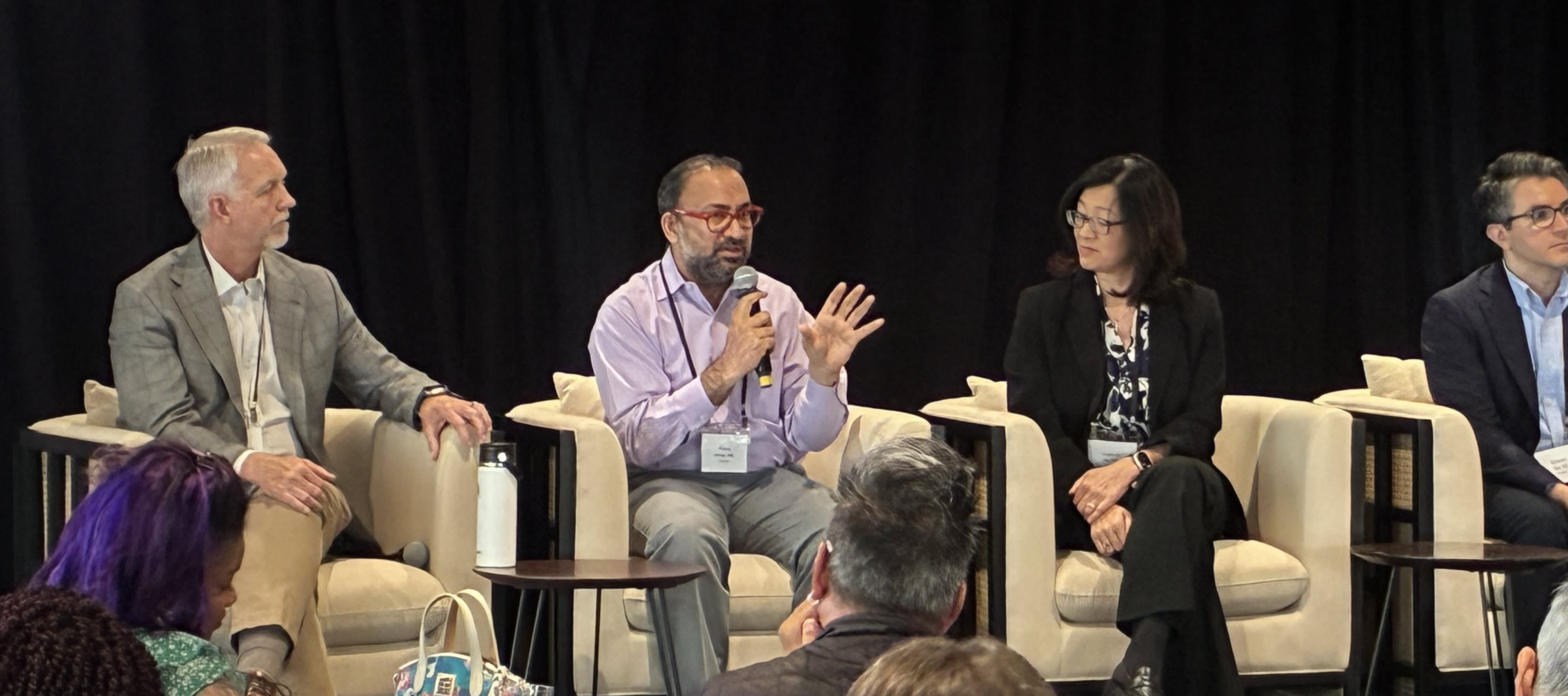
September was a remarkable month for SSVMS, as we had the opportunity to both lead a vital community conversation on fentanyl and celebrate the resilience and compassion of physicians through our annual Joy of Medicine Summit. These two gatherings, though focused on different aspects of health, share a common thread: building stronger communities through education, collaboration, and care.
On September 4, the Sacramento County Opioid Coalition, for which SSVMS proudly serves as the convening organization, hosted the Fentanyl Awareness and Action Summit at the Citrus Heights Community Center. The free, full-day event brought together more than 400 registrants and featured 40 resource booths, drawing participants from across public health, law enforcement, health care, community-based organizations, and families directly impacted by the fentanyl crisis.
This year also marked a milestone: the Coalition’s 10-year anniversary. We were honored to recognize Olivia Kasirye, MD, Sacramento County’s Public Health Officer, with an award for her leadership in founding the original Opioid Task Force in 2015. Dr. Kasirye’s commitment over the past decade has been a guiding force in shaping the region’s coordinated response to the opioid epidemic.
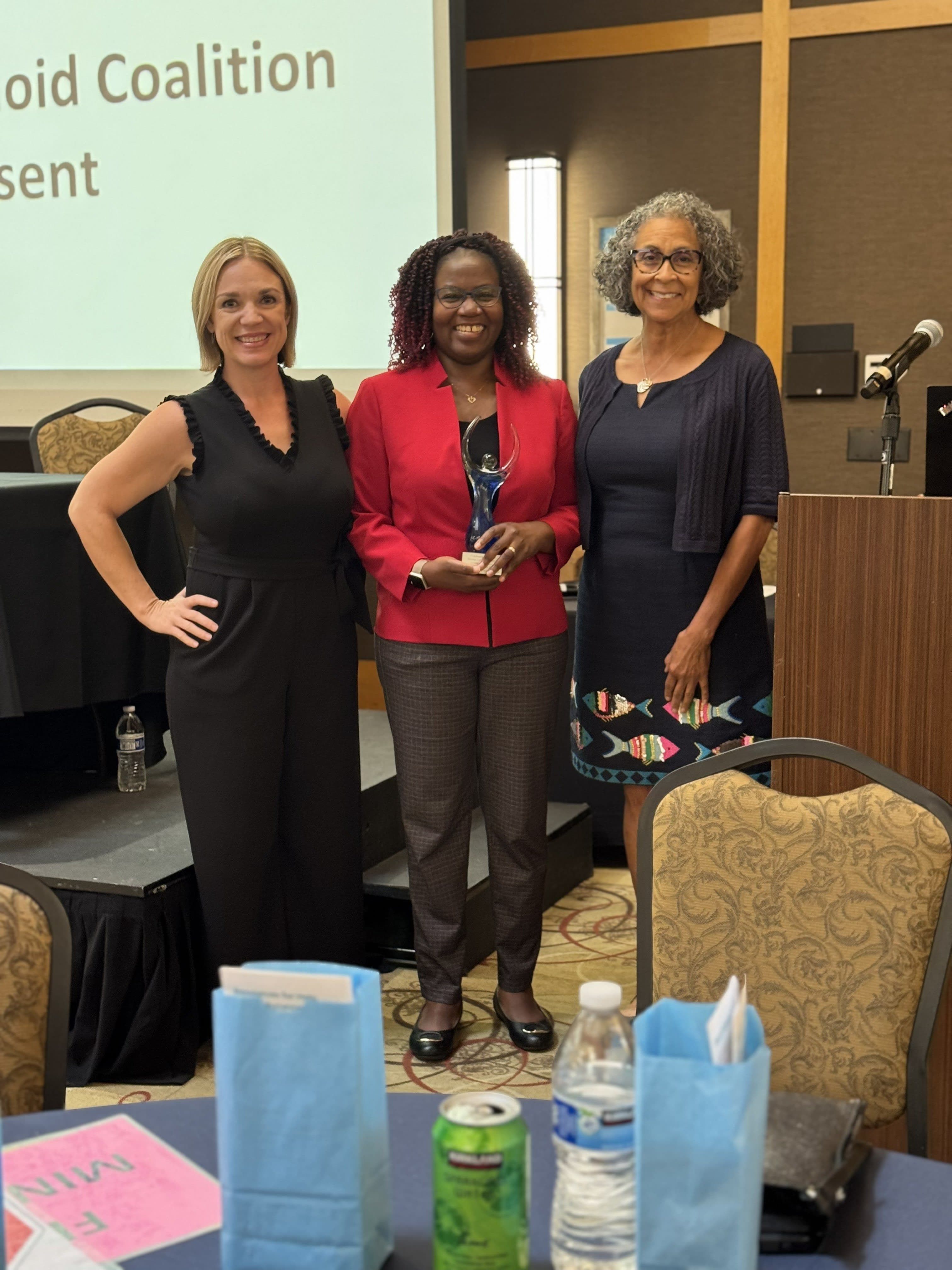
Dr. Olivia Kasirye, center, founded the original Opiod Task Force
The Summit offered a powerful program with diverse voices. From law enforcement officials to physicians, from youth advocates to families who have lost loved ones, the day was marked by both data-driven presentations and deeply personal testimonies.
One of the most surprising and encouraging statistics came from the national stage: a roughly 25 percent reduction in overdose deaths in the United States between 2023 and 2024. Behind that number are countless lives saved, thanks to community-driven initiatives such as expanded distribution of naloxone (Narcan), increased access to treatment, effective law enforcement interventions, and ongoing efforts to reduce stigma around substance-use disorders.
These insights underline that substance-use disorder is a medical condition requiring evidence-based treatment, empathy, and coordinated community support. As the Coalition reminds us, the issue is far from black and white: good people take drugs and drugs take good people.
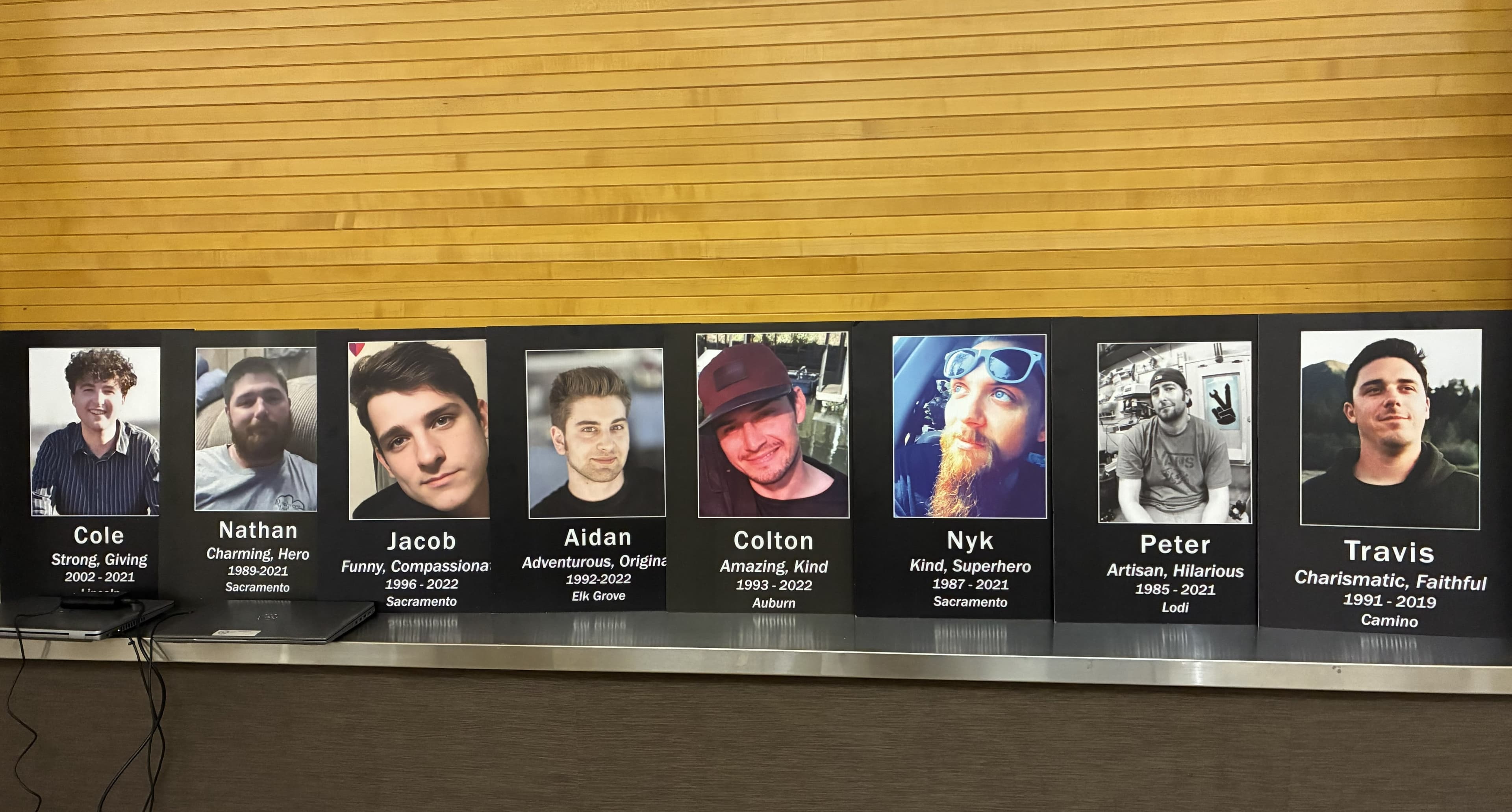
Some of the young lives lost to substance-use disorders in recent years
Later in the month, on September 27, SSVMS held the 9th Annual Joy of Medicine Summit in Sacramento. This event, part of our ongoing Joy of Medicine program, continues to provide a space where physicians can step away from the pressures of practice and reconnect with their community in a purposeful way.
Sessions reflected both the challenges and the promise of modern medicine, with topics spanning physician well-being, patient communication, and the emerging role of artificial intelligence.
Holding the Line: Navigating Misinformation While Preserving Compassion and Credibility
Opening the morning, Kristine Burkman, PhD spoke to the growing challenge of navigating misinformation in a polarized environment. She emphasized that while patients may not always follow medical advice, the act of giving evidence-based guidance remains essential. Her session reinforced that maintaining empathy and credibility, even when science is questioned, is vital to preserving trust in the physician-patient relationship.
When Colleagues Are in Crisis: Recognizing Distress, Offering Support
Christina Bilyeu, MD delivered a deeply impactful session on the importance of recognizing when colleagues may be in distress. She offered practical tools for reaching out, including one simple but powerful phrase: “How are you doing, really?” That extra word – really – can open the door to honesty and vulnerability, letting colleagues know that it is safe to say, “I am not ok.” The reminder that a single conversation can save a career, or even a life, left a lasting impression.

AI in Practice: Where We Are, Where We Are Going
Moderated by Peter Yellowlees, MD, this panel discussion offered a balanced view of the role of artificial intelligence in health care. The consensus was clear: AI is not here to replace physicians, but to complement and enhance the work we already do. Real-world examples demonstrated how AI can assist in clinical decision-making, improve efficiency, and provide additional support in patient care, while ethical considerations remain an important part of the conversation.
If you were unable to attend the Joy of Medicine Summit but want to see the discussions, you can find them at the SSVMS YouTube page.
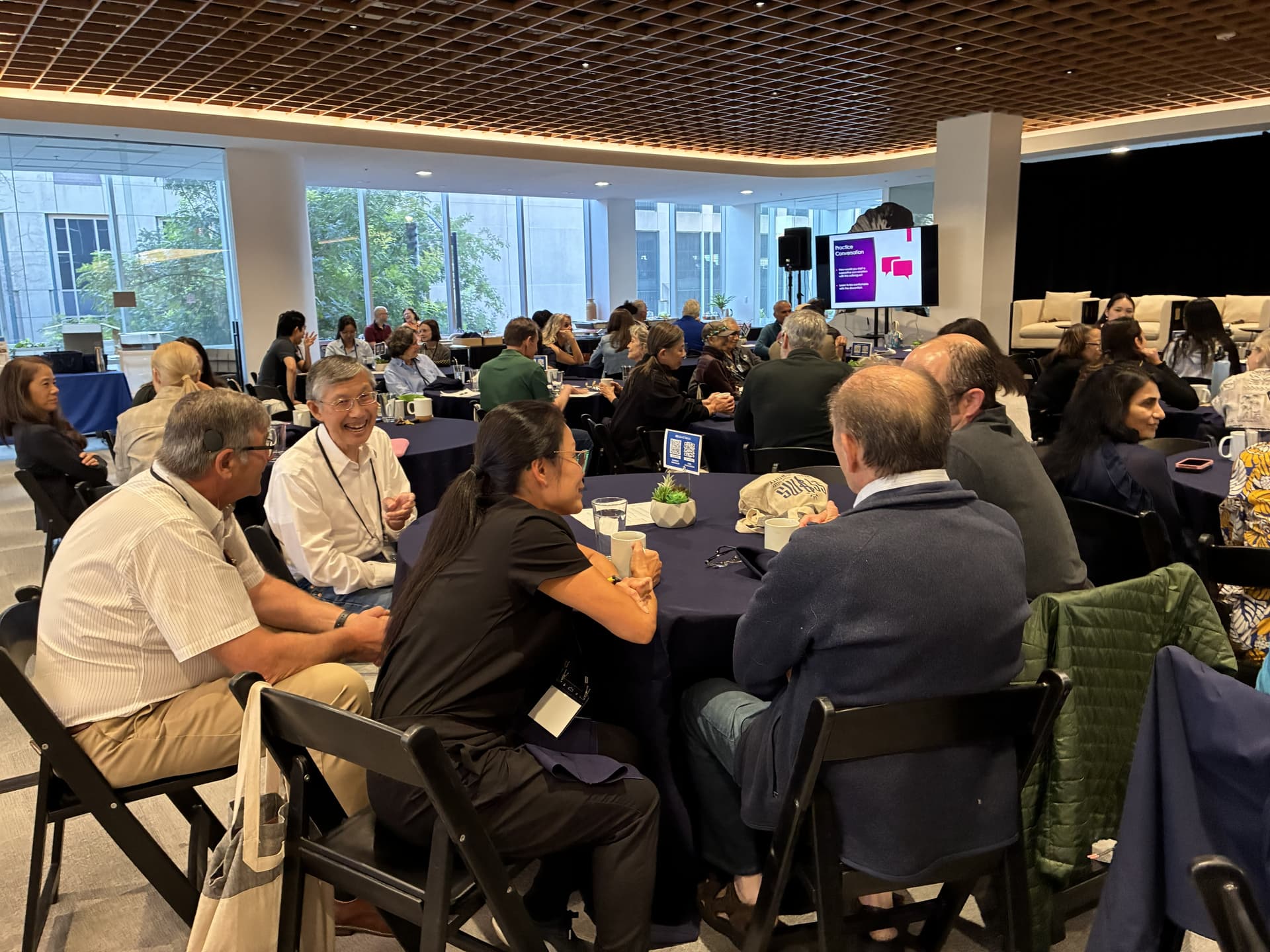
At the Joy of Medicine Summit, Sept. 27, 2025
The success of these two events underscores the mission of SSVMS: to foster a healthier community by supporting physicians and patients alike. The Fentanyl Summit highlighted the power of collective action to save lives and reduce stigma. The Joy of Medicine Summit reminded us that supporting physicians’ well-being and reinforcing compassion in the profession are equally essential to the health of our community.
As we look forward, SSVMS will continue to lead in convening community partners, advocating for evidence-based policies, and providing meaningful programs that restore and preserve the joy of practicing medicine. Together, we are building a future where physicians and patients alike can thrive.

awetzel@ssvms.org

